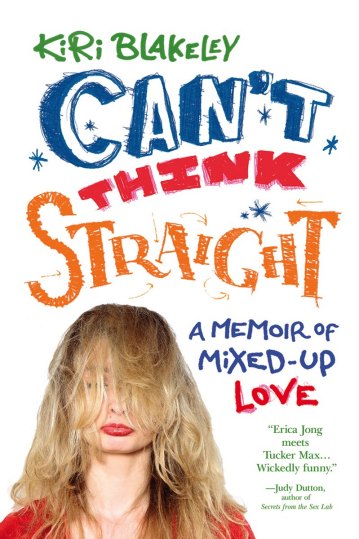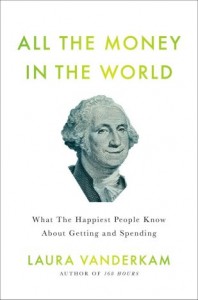A Post Where You Get to Help A Fellow Reader Out
When I asked you all about your most vexing marital problems, AmyB commented:
“Internet Pornography is a constant struggle. I’m not against sexual experimentation or even masturbation. I’m not even against other ‘consenting” adults using responsible pornography if they like it and it helps their sex lives, BUT I feel that in MY relationship I want my partner to direct his sexual tension and arousal to me, his very open sexual partner, not an anonymous person on a computer screen. According to him, pornography and sex with a partner are two totally different things. I still can’t help to think that it affects the dynamics of a relationship. Am I being unrealistic? Am I not allowing my partner to be independent in his choice to watch pornography? Should I respect his choice to watch pornography? He’s attempted to quit plenty of times and, at the moment, he doesn’t do it (to my knowledge). Still I know it’s a big struggle for him and I know that if he had the house to himself, he’d probably do it. What’s worse, I can’t do anything to help him.”
Porn is one of those issues that tends to polarize people, so I’d like to attempt what might be impossible: a civil discussion about it. Here are the rules for commentating:
- No name-calling. I will delete any insults without a warning.
- Definitely state your view. If you think it’s wrong, say it. If you think it’s a divine gift, say it. But DON’T attack someone else for not agreeing with your opinion.
- If you try to comment and can’t, let me know. I’m still trying to fix what’s wrong with the commenting area on this site.
Got it?
I’ll start. My views on porn fall somewhere in the middle. It doesn’t offend me. I’ve watched it on occasion with my husband. It can be the spark that gets the mood started. All of that said, I think of porn much as I think of fast food. For me, fast food might be okay in a pinch—like when I’m on the New York Thruway at 3 am and seriously too hungry to go on. It’s not how I want to meet my daily hunger needs.
Similarly, with porn, it might work for a couple if it’s one trick in their arsenal of ways they get in the mood—and especially on those rare occasions when they are just too fatigued to come up with something better. But if it becomes a crutch–something you need everyday to feel happy, satisfied or in the mood—then it’s not healthy.
Because I didn’t feel completely qualified to tackle this topic, I also asked Stu Gray, who pens the Stupendous Marriage blog for insight. What follows are my questions and his answers.
Me: I imagine, like alcohol, some people can partake in porn and have it be a somewhat harmless pastime, whereas others get addicted and do much harm to themselves and their families. Do you agree with this? Or, after your experiences, do you feel there is nothing that is ever harmless about it?
Stu: I think from a scientific standpoint, that’s probably true. Some people are wired to be more prone to be addicted to alcohol, or drugs, or sex or food, and others don’t seem to be addicted to the ‘biggies’ that classify as addiction in our culture. The thing we can’t control is when the brain makes that click from “Its a harmless past time” to “I gotta have it all the time”. It’s a dangerous game to play especially with your brain and with sex. I heard it said once that “we aren’t born with an alcohol drive but we ARE born with a sex drive.” The drive that can be so good can end up driving us to do things that can ultimately be painful.
From a relationship standpoint, I think porn is harmful in several ways. Porn fans the flame of selfishness: She won’t give me what I want when I want it? I’ll take care of it myself.
The “me first” attitude tends to become a dominant factor. Great Marriages are made up of two people who love and give to one another. Porn rewires the brain to always be in a state of, “What can you do for me sexually?”
Porn usually leads to masturbation. Not for everyone, but for many. When you masturbate to an image other than your spouse, the sexual desire is fulfilled by someone outside your marriage. So, you have less desire to seek your spouse out for sexual connection. You also train your mind and your body to respond to images that are a false reality. So, your mind begins to think, “I want that all the time with my spouse.” Physically, if you are chronically masturbating, you begin to associate sexual release with images. This leads to a tough time in the bedroom with some people not being able to perform at all because it takes videos or images to be aroused.
Spouses feel like they can’t measure up because they don’t look like the images, and they don’t feel like the sexual fantasy you create when you “act out” with yourself.
Me: What are the signs that someone is addicted?
Stu: I think the quickest way to begin to see if someone is addicted is to ask him or her to stop. Most people who have a compulsion toward something harmful will say that they can stop anytime they want, that they just don’t choose to. So, call their bluff. Challenge them lovingly with, ‘If you can stop – do it’.
Most will begin with excuses about how it doesn’t harm anyone, that they are just having fun, or that it’s not a real problem. This type of denial is usually one indicator of an addiction. Also, if they do try to stop and can’t or begin hiding it, then they could be going down that road.
People show signs of addiction in different ways. For one addict, it could look like a need for more edgy pornography. For another it might be unhealthy adventurous sex with your spouse. For another it could be moving from images to real life sexual affairs. Or, It could look like something as simple as erasing the history in your browser because you know that it hurts your spouse when they find it.
Many times people mistake the “symptoms” for the “problem.” If someone is addicted to pornography, somewhere, at some point in time, it may have started as something fun they did when they were single. But now, it has become the “go to” when they want to escape from reality. So, the pornography itself isn’t’ the issue. It’s a heart issue. Why does this person need to escape from their current reality and look to porn to fill that need? That is the point couples need to focus on first.
Me: Beyond the obvious, what is the allure that keeps someone coming back again and again?
Stu: The allure is no consequences and no denial. If you don’t have to beg or cajole the image on the screen, that is much easier than having to negotiate a time between soccer and after the kids go to bed, or when they don’t feel like it, or some other perceived excuse to not have sex. Porn never gives an excuse to not have sex.
That’s the seduction. It’s an easy YES.
Porn makes the sexual act all about body parts and the looks of a person. Porn offers a surface look at body parts that is devoid of any type of emotional connection, which is necessary in marriage and healthy relationships. Anyone who has been married and had sex with one person for several years knows that the sex can get better as you get to know one another better. It doesn’t have as much to do with the body as it does with the connection to your spouse.
Me: Understandably, partners can feel hurt, angry, and envious of porn. While perhaps justified, these emotions don’t lead to healing, understanding or progress. What can a spouse do to help an addicted spouse overcome the problem?
Stu: To begin with, I think it’s important to understand that your spouse’s addiction has little to do with you. You didn’t drive your spouse to pornography. Your spouse might blame you, but your spouse made these choices.
That doesn’t mean you should be harsh or condemning. Try to take emotions out of it.
It is very important for someone who is addicted to know that there are consequences for behaviors. With love, say that this behavior is not acceptable for you and your marriage. Ask if it is a problem. Ask what they get from pornography. Suggest someone with which can talk openly about it such as a counselor, pastor, or support group.
It’s likely you’ll meet resistance. Until the addict decides that he wants to change, there will be no change. So, sometimes you have to be the change. I’m not saying divorce — but perhaps a long trip to see the family (if you don’t normally do that), or a separating until you see positive steps taken (like filters on computers, accountability with other people, counseling, or some other actions toward health).
There are also groups for spouses of addicted folks. Getting into a group that is healthy (not just badmouthing addicts) can be very beneficial. Also, reading about sex and porn addiction can be eye opening. There are several authors who have written specifically for spouses of sexually addicted people. Check out work from Mark Laaser and Pat and Stefanie Carnes.
Readers: Now it’s your turn. What’s your advice? What’s your take? Remember the rules.
 Apparently Kiri Blakeley and I were destined to become friends. Kiri used to write regularly for Forbes Woman. One day, about a year ago, my phone rang. I picked it up. It was Kiri. She interviewed me about something or other. I think it was a story about celebrities and how they suck at staying married.
Apparently Kiri Blakeley and I were destined to become friends. Kiri used to write regularly for Forbes Woman. One day, about a year ago, my phone rang. I picked it up. It was Kiri. She interviewed me about something or other. I think it was a story about celebrities and how they suck at staying married. Apparently, this isn’t the case. Or, at least, it’s not the case in Brooklyn. Now, let me tell you something. Kiri is drop dead gorgeous. And she, at that time, was working an enviable job at Forbes magazine. She was quite the catch by anyone’s standards.
Apparently, this isn’t the case. Or, at least, it’s not the case in Brooklyn. Now, let me tell you something. Kiri is drop dead gorgeous. And she, at that time, was working an enviable job at Forbes magazine. She was quite the catch by anyone’s standards.
 Recently some of my friends were revealing their fantasies. One admitted that, in her mind, she sometimes marries a wealthy man who pays all her bills and takes her on trips around the world.
Recently some of my friends were revealing their fantasies. One admitted that, in her mind, she sometimes marries a wealthy man who pays all her bills and takes her on trips around the world.